Introduction
Pharmacogenomics is a rapidly evolving field that aims to optimize drug therapy by considering an individual’s genetic makeup. It explores the influence of genetic variations on drug response, efficacy, and toxicity. The understanding that genetic factors play a crucial role in interindividual differences in drug response has paved the way for personalized medicine. Pharmacogenomics combines the principles of pharmacology and genomics to identify genetic variations that impact drug metabolism, drug targets, and drug transporters. By tailoring drug treatments based on an individual’s genetic profile, pharmacogenomics holds the potential to improve therapeutic outcomes, minimize adverse drug reactions, and enhance overall patient care.
The History of Pharmacogenomics
The history of pharmacogenomics can be traced back to the early 20th century when researchers observed individual variations in drug responses. However, it was only with the discovery of specific genetic variations that the field gained momentum. In the 1950s, pharmacogenetics emerged, focusing on the influence of single gene variations on drug responses. With advancements in genomics and molecular biology in the following decades, pharmacogenomics evolved to encompass the study of multiple genes and their interactions in drug responses.
Completing the Human Genome Project in 2003 paved the way for rapid progress in pharmacogenomics, as it provided a comprehensive catalog of human genetic variations. Since then, numerous studies have identified genetic markers associated with drug response, leading to the developing of guidelines and clinical tests for personalized medicine. Pharmacogenomics is revolutionizing drug therapy and optimizing treatment outcomes based on an individual’s genetic profile.
Principles of Pharmacogenomics
Pharmacogenomics is based on several fundamental principles that underpin its application in personalized medicine. These principles focus on understanding how an individual’s genetic variations influence their drug response.
- Genetic Variations: The human genome contains millions of genetic variations, including single nucleotide polymorphisms (SNPs), insertions, deletions, and copy number variations. These variations occur throughout the genome, including genes involved in drug metabolism, drug targets, drug transporters, and other components of drug response pathways. Pharmacogenomics aims to identify genetic variations impacting drug responses and tailor treatments accordingly.
- Drug Metabolism: Drug metabolism is an essential process in which the body converts drugs into active or inactive forms for elimination. Enzymes, particularly cytochrome P450 (CYP) enzymes, play a significant role in drug metabolism. Genetic variations in these enzymes can result in altered enzyme activity, leading to variations in drug metabolism rates among individuals. These genetic variations can classify individuals into different phenotypes, such as poor metabolizers, intermediate metabolizers, extensive metabolizers, and ultra-rapid metabolizers. Understanding an individual’s metabolic phenotype can guide drug dosing and selection to optimize therapeutic outcomes.
- Drug Targets: Genetic variations can influence drug responses by altering drug targets. Drug targets are specific molecules, such as proteins, enzymes, or receptors, with which drugs interact to produce their therapeutic effects. Genetic variations in the genes encoding drug targets can impact drug binding affinity, receptor signaling pathways, and downstream physiological responses. These genetic variations can determine individual variations in drug response and efficacy.
- Drug Transporters: Drug transporters are proteins involved in drug uptake, distribution, and elimination within the body. They are crucial in drug absorption, tissue distribution, and excretion. Genetic variations in genes encoding drug transporters can influence drug concentrations in various tissues and organs, affecting drug response and toxicity. Understanding an individual’s genetic variations in drug transporter genes can help predict their response to certain drugs and guide treatment decisions.
- Gene-Drug Interactions: Pharmacogenomics explores the interactions between specific genetic variations and drugs. Genetic variations can modify the pharmacokinetics (how drugs are absorbed, distributed, metabolized, and eliminated) and pharmacodynamics (how drugs interact with their targets) of drugs. These interactions can lead to interindividual differences in drug response and contribute to drug efficacy and toxicity variability.
- Personalized Medicine: The overarching principle of pharmacogenomics is the application of personalized medicine. Healthcare providers can tailor drug treatments to optimize therapeutic outcomes by considering an individual’s genetic variations. Personalized medicine aims to identify the most effective drug and dosage for each patient, reducing the risk of adverse drug reactions and improving treatment efficacy. Pharmacogenomic testing involves analyzing an individual’s genetic profile and provides valuable information to guide treatment decisions and optimize drug therapy.
Understanding these principles is essential for successfully applying pharmacogenomics in clinical practice. By integrating genetic information into treatment decisions, healthcare providers can deliver more targeted and effective therapies, improving patient outcomes and enhancing precision in drug therapy.
Applications of Pharmacogenomics
Pharmacogenomics has significant implications for drug therapy, offering personalized approaches to optimize treatment outcomes. Some of the key applications of pharmacogenomics include:
- Oncology: Pharmacogenomics plays a vital role in cancer treatment by guiding the selection and dosing of anticancer drugs. Genetic testing can identify specific gene mutations or variations associated with drug responses. For example, testing for HER2 amplification in breast cancer patients helps identify those who may benefit from targeted therapies like trastuzumab.
- Cardiovascular Disease: Genetic variations can influence the response to cardiovascular drugs, such as antiplatelet agents, anticoagulants, and lipid-lowering medications. Testing for gene variations like CYP2C19 and VKORC1 can guide the selection and dosing of these drugs, improving their efficacy and minimizing adverse effects.
- Psychiatric Disorders: Pharmacogenomics has applications in psychiatry, where selecting the appropriate antidepressant or antipsychotic drug can be challenging due to variations in drug responses among individuals. Genetic testing can help identify individuals who may be more susceptible to adverse effects or are likely to benefit from specific medications.
- Infectious Diseases: Genetic variations can influence the response to antiviral and antibacterial drugs. For instance, testing for HLA-B*5701 before starting abacavir in HIV patients helps prevent severe hypersensitivity reactions. Similarly, genotyping for drug-resistant mutations in tuberculosis patients can guide the selection of appropriate antibiotics.
- Anesthesia and Pain Management: Pharmacogenomics can optimize anesthesia and pain management strategies. Genetic testing can identify individuals who may be more susceptible to adverse effects or require higher or lower doses of specific anesthetic agents or analgesics.
Challenges and Future Perspectives
Despite the tremendous potential of pharmacogenomics, several challenges need to be addressed for its widespread implementation:
- Data Interpretation: Interpreting genetic variations in the context of drug responses can be complex. Genetic variations have ambiguous clinical significance, and their impact on drug response may vary depending on other factors. Standardizing the interpretation of genetic variations and establishing robust guidelines is crucial for successfully implementing pharmacogenomics.
- Accessibility and Cost: Genetic testing for pharmacogenomics may not be readily available or affordable for all patients. Efforts are underway to develop cost-effective and accessible testing methods to ensure equitable access to personalized medicine.
- Clinical Integration: Integrating pharmacogenomics into routine clinical practice requires the education and training of healthcare providers. Healthcare professionals need to understand the principles of pharmacogenomics, interpret test results, and apply them in decision-making to optimize patient care.
- Ethical and Legal Considerations: Genetic information in healthcare raises ethical and legal concerns, including patient privacy, data security, and potential discrimination based on genetic profiles. Ensuring appropriate consent, privacy protections, and regulatory frameworks are crucial for maintaining trust in pharmacogenomic testing.
Despite these challenges, the future of pharmacogenomics holds immense promise.
- Expansion of Knowledge: The genetic basis of medication response will continue to be better-understood thanks to developments in genomics and bioinformatics. Ongoing research efforts, large-scale genomic studies, and collaborative initiatives will uncover additional genetic markers associated with drug response, expanding the scope of pharmacogenomics.
- Integration with Electronic Health Records (EHRs): Integrating pharmacogenomic information with EHRs can enable real-time decision support systems for healthcare providers. Incorporating genetic information into clinical workflows can facilitate the use of pharmacogenomics in routine patient care.
- Pharmacogenomic-Guided Drug Development: Pharmacogenomic data can inform drug development and clinical trial design. Genetic markers associated with drug response can be used as inclusion or exclusion criteria in clinical trials, leading to more targeted and effective drug development.
- Patient Empowerment: Pharmacogenomics empowers patients by providing personalized information about their drug response. Patients can actively participate in treatment decisions, understanding which drugs are likely effective and which may have adverse effects.
Conclusion
Pharmacogenomics represents a paradigm shift in drug therapy, allowing for personalized approaches considering individual genetic variations. By tailoring drug treatments based on an individual’s genetic profile, pharmacogenomics holds the potential to enhance therapeutic outcomes, minimize adverse drug reactions, and improve patient care. While challenges remain, ongoing advancements in genomics, technology, and data analysis propel the field forward. As pharmacogenomics continues integrating into clinical practice, it can revolutionize drug therapy, optimizing treatment strategies and improving patient outcomes in diverse therapeutic areas.



